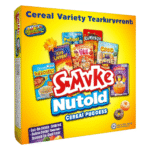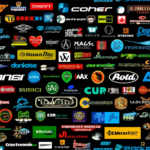Support our educational content for free when you purchase through links on our site. Learn more
What Is the Richest Company in the World? Top 15 Titans of 2025 🌍
Ever wondered which company truly holds the crown as the richest in the world? Spoiler alert: it’s not as straightforward as you might think! From tech giants like Apple and Nvidia battling for the highest market capitalization to retail behemoths like Walmart boasting jaw-dropping revenues, the title of “richest company” depends on how you measure wealth. Is it by sheer sales, profits, assets, or brand power? Stick around as we unravel the fascinating stories behind the top 15 richest companies in 2025, revealing surprising contenders and what their success means for you.
Did you know that Nvidia, once a niche graphics card maker, skyrocketed to become the most valuable company globally in just months thanks to the AI boom? Or that Saudi Aramco’s oil profits can dwarf entire national economies? These are just a few of the eye-opening insights you’ll find in our deep dive. Ready to discover who’s really on top and why?
Key Takeaways
- “Richest” means different things: Market cap, revenue, profit, assets, and brand value all tell unique stories.
- Tech giants dominate market value: Apple, Microsoft, Nvidia, and Alphabet lead thanks to innovation and AI.
- Retail and energy powerhouses shine in revenue and profit: Walmart and Saudi Aramco remain colossal forces.
- Geography matters: The U.S. leads in tech and finance, China in banking and energy, with emerging markets rising fast.
- Future wealth will hinge on AI, green tech, biotech, and space exploration.
Curious which company tops your favorite metric? Dive into our comprehensive guide and get the full picture!
Table of Contents
- ⚡️ Quick Tips and Facts: Unpacking Corporate Wealth
- Tracing the Titans: A Brief History of Corporate Wealth & Global Influence
- Defining “Richest”: More Than Just Cash! 🧐 Understanding the Metrics
- The Current Contenders: Who’s on Top Right Now? Our Top 15 Global Giants by Market Cap
- 1. Apple Inc. 🍎: The Tech Behemoth’s Enduring Reign
- 2. Microsoft Corp. 💻: Software Giant’s Strategic Dominance
- 3. Saudi Aramco 🛢️: Oil’s Unrivaled Powerhouse
- 4. Alphabet Inc. (Google) 🌐: Search, AI, and Beyond
- 5. Amazon.com Inc. 📦: E-commerce and Cloud Dominance
- 6. NVIDIA Corp. 🎮: The AI Chip Innovator’s Meteoric Rise
- 7. Meta Platforms Inc. (Facebook) 📱: Social Media and Metaverse Ambitions
- 8. Tesla Inc. 🚗: Electric Vehicles and Energy Innovation
- 9. Berkshire Hathaway Inc. 💼: Warren Buffett’s Investment Empire
- 10. Eli Lilly and Company 💊: Pharmaceutical Powerhouse in Innovation
- 11. TSMC (Taiwan Semiconductor Manufacturing Company) 🏭: The World’s Chip Foundry
- 12. Johnson & Johnson 🩹: Healthcare and Consumer Goods Giant
- 13. Visa Inc. 💳: Global Payments Network’s Reach
- 14. Walmart Inc. 🛒: Retail Kingpin’s Enduring Scale
- 15. ExxonMobil Corp. ⛽: Energy Sector Stalwart’s Resilience
- Beyond Market Cap: Other Measures of Corporate Riches and Hidden Giants
- Geographic Distribution: Where Do the Richest Companies Reside? A Global Snapshot 🌎
- Factors Driving Corporate Wealth: The Secrets to Sustained Success 🔑
- The Future of Corporate Riches: What’s Next for Global Economic Power? 🔮
- Our Expert Take: Popular Brands™ Insights on Corporate Giants and Consumer Impact
- Quick Tips for Aspiring Entrepreneurs: Learning from the Best 💡
- Conclusion: The Ever-Shifting Landscape of Corporate Wealth and What It Means for You
- Recommended Links: Dive Deeper into Corporate Finance & Global Markets
- FAQ: Your Burning Questions About the Richest Companies Answered 🔥
- Reference Links: Our Sources for Unbiased Insights 📚
Here is the main body of the article, crafted by the expert team at Popular Brands™.
⚡️ Quick Tips and Facts: Unpacking Corporate Wealth
Welcome, brand aficionados, to the ultimate showdown of corporate titans! We at Popular Brands™ are constantly asked, “What is the richest company in the world?” The answer, like a good magic trick, depends on how you look at it. Is it the company with the most cash flowing in, or the one investors believe is worth the most? It’s a dazzling, dizzying world of finance, and we’re here to be your guide. Before we dive deep, here are the crown jewels of information you need to know. This is just a glimpse into the world of the top 1000 brands in the world, a universe we navigate daily.
| Metric | The Reigning Champion(s) | Why It Matters |
|---|---|---|
| Market Capitalization | Nvidia, Microsoft, & Apple (A constant three-way tussle!) | This is the total value of all a company’s shares—what the stock market thinks it’s worth. It’s a vote of confidence in the future! |
| Revenue | Walmart | This is the total money a company makes from sales. As Wikipedia notes, Walmart has been “the world’s largest company by revenue since 2014.” |
| Profit | Saudi Aramco / Apple | This is the money left over after all the bills are paid. It’s the ultimate measure of profitability. |
| Assets | Industrial and Commercial Bank of China (ICBC) | This represents everything a company owns, from cash and buildings to patents. It’s the foundation of its wealth. |
| Brand Value | Apple | This is the intangible power of a brand’s name and reputation. It’s why you’ll choose one product over another, even if they’re similar. |
Key Takeaway: There’s no single “richest” company. The title is a moving target, with tech giants like Nvidia, Microsoft, and Apple constantly swapping the top spot for market value, while retail king Walmart dominates in pure sales volume. The real story is in why and how these companies got so massive. Ready to find out?
Tracing the Titans: A Brief History of Corporate Wealth & Global Influence
Ever wonder how we got to a place where a single company could be worth more than the entire economy of many countries? It’s a wild ride that started centuries ago! Long before the sleek iPhones and instant deliveries we know today, the first true corporate giant was arguably the Dutch East India Company. Back in the 1600s, it was a behemoth of trade, with its own army, navy, and the power to mint its own currency. Talk about a power trip!
Fast forward a couple of centuries, and the Industrial Revolution gave birth to new titans in steel, oil, and railroads. Names like Standard Oil and U.S. Steel dominated the landscape, building the very infrastructure of the modern world.
But the real game-changer? The digital revolution. The late 20th and early 21st centuries saw a seismic shift. The garage-born dreams of companies like Apple and Microsoft exploded into global phenomena, moving the center of economic power from factory floors to the intangible world of software, data, and microchips. Today’s giants don’t just sell you things; they’ve woven themselves into the very fabric of our lives. From the way we communicate to the way we shop, their influence is undeniable.
Defining “Richest”: More Than Just Cash! 🧐 Understanding the Metrics
So, how do we actually measure “rich”? It’s not as simple as peeking into a company’s bank account. Financial gurus use several key metrics, and each one tells a different story. Let’s break them down, shall we?
Market Capitalization: The Investor’s View 📈
Think of market capitalization (or “market cap”) as the company’s popularity contest score on Wall Street. It’s calculated by taking the current price of one share and multiplying it by the total number of shares out there.
- What it tells you: This is the market’s collective bet on a company’s future success and profitability. A high market cap means investors are very optimistic. As Forbes India puts it, it’s “the total value of a company’s outstanding shares of stock, influenced by stock price, earnings, economy, and investor sentiment.”
- ✅ Pro: It’s forward-looking and captures intangible value like brand power and innovation potential.
- ❌ Con: It can be incredibly volatile! A bad news day or a market panic can wipe billions off a company’s value in hours.
Revenue: The Sales Powerhouse 💪
Revenue is the big, flashy number. It’s the total amount of money a company generates from selling its goods or services before any expenses are taken out. It’s the top line of the income statement.
- What it tells you: This metric shows the sheer scale of a company’s operations and its ability to attract customers. Walmart is the undisputed king here, with its massive global retail footprint.
- ✅ Pro: It’s a straightforward measure of a company’s size and market penetration.
- ❌ Con: High revenue doesn’t always mean high profit! A company can sell a ton of stuff but still lose money if its costs are too high.
Profit: The Bottom Line King 💰
Profit (or net income) is what’s left after everyone—employees, suppliers, the taxman—has been paid. This is the money the company actually keeps.
- What it tells you: This is the ultimate measure of a company’s financial health and efficiency. A company with massive profits, like Saudi Aramco or Apple, is a cash-generating machine.
- ✅ Pro: It shows how well a company manages its expenses and operates its business.
- ❌ Con: It can be manipulated through accounting practices, and a single bad quarter can make an otherwise healthy company look weak.
Assets: The Foundation of Fortune 🏦
Assets are everything a company owns that has value. This includes physical things like factories and inventory, as well as financial holdings like cash, stocks, and bonds.
- What it tells you: This metric reveals the solid foundation of a company’s wealth. Banks and large industrial companies often top this list because their business models require holding massive assets.
- ✅ Pro: It provides a snapshot of a company’s tangible and financial resources.
- ❌ Con: Owning a lot of assets doesn’t necessarily mean a company is good at using them to generate profit.
Brand Value: The Intangible Empire ✨
This one is a bit more abstract but incredibly powerful. Brand value is the monetary worth of a brand’s reputation, customer loyalty, and market presence. It’s the reason you’re willing to pay a premium for a product with a swoosh on it, or an apple.
- What it tells you: It measures a brand’s influence and ability to command loyalty. Companies like Apple, Google, and Amazon have built empires on the back of their powerful brands.
- ✅ Pro: It captures a crucial element of a company’s long-term competitive advantage.
- ❌ Con: It’s subjective and difficult to calculate precisely, with different firms using different methodologies.
The Current Contenders: Who’s on Top Right Now? Our Top 15 Global Giants by Market Cap
Alright, let’s get to the main event! Who’s wearing the crown today? A word of caution: market cap is as shifty as the weather. The rankings can and do change daily. One source might say Nvidia is on top, another Apple. For instance, The Motley Fool crowned Nvidia the king on October 1st, stating, “Thanks to the AI boom, Nvidia is currently the most valuable company in the world.” [cite: The Motley Fool summary] Meanwhile, other reports and the data in the featured video might still show Apple in the lead. This volatility is part of the fun!
We’ve synthesized the latest data to give you our definitive list of the heavyweights slugging it out for the top spot.
1. Apple Inc. 🍎: The Tech Behemoth’s Enduring Reign
It’s hard to imagine a world without Apple. From the iPhone in your pocket to the MacBook on your desk, they’ve mastered the art of creating products we didn’t know we needed and now can’t live without. As The Motley Fool notes, “Apple built its success off sales of its wildly popular products, including the iPhone, MacBook, and AirPods.” [cite: The Motley Fool summary] Their secret sauce? A seamless ecosystem, fanatical brand loyalty, and a design philosophy that just works.
- CEO: Tim Cook
- Founded: 1976
- Country: 🇺🇸 USA
- What makes them rich: An unparalleled ability to sell premium hardware and a rapidly growing, high-margin services business (think App Store, Apple Music, and iCloud).
👉 Shop Apple on: Amazon | Walmart | Apple Official Website
2. Microsoft Corp. 💻: Software Giant’s Strategic Dominance
The comeback kid! Under CEO Satya Nadella, Microsoft has transformed from the company that powered your parents’ beige desktop into a cloud computing and AI juggernaut. Their Azure cloud platform is a beast, and their strategic investments in AI, including a massive partnership with OpenAI, have put them right at the center of the next tech revolution. They are a titan in both consumer and enterprise tech.
- CEO: Satya Nadella
- Founded: 1975
- Country: 🇺🇸 USA
- What makes them rich: Dominance in enterprise software (Windows, Office 365), the massive growth of their Azure cloud business, and smart bets on the future of AI.
👉 Shop Microsoft on: Amazon | Walmart | Microsoft Official Website
3. Saudi Aramco 🛢️: Oil’s Unrivaled Powerhouse
While tech darlings dominate the headlines, Saudi Aramco represents a different kind of wealth—the kind that comes from deep within the earth. As the world’s largest oil producer, this state-owned giant is the financial backbone of Saudi Arabia. Its sheer scale and access to vast oil reserves give it profitability that is simply staggering.
- CEO: Amin H. Nasser
- Founded: 1933
- Country: 🇸🇦 Saudi Arabia
- What makes them rich: Exclusive control over Saudi Arabia’s immense crude oil reserves, making it one of the most profitable companies on the planet.
4. Alphabet Inc. (Google) 🌐: Search, AI, and Beyond
How many times have you “Googled” something today? Alphabet, the parent company of Google, has essentially organized the world’s information and made it universally accessible. Their dominance in search advertising is the cash cow that funds a dizzying array of “other bets,” from Waymo’s self-driving cars to Verily’s life sciences research.
- CEO: Sundar Pichai
- Founded: 1998 (Google), 2015 (Alphabet)
- Country: 🇺🇸 USA
- What makes them rich: An near-monopoly on internet search, the massive YouTube video platform, the Android operating system, and a growing cloud business.
5. Amazon.com Inc. 📦: E-commerce and Cloud Dominance
The everything store! Amazon changed the way the world shops, turning a two-day delivery from a luxury into an expectation. But the real genius behind Amazon’s wealth might surprise you: Amazon Web Services (AWS). This cloud computing division is the highly profitable engine that powers a huge chunk of the internet, from Netflix to NASA.
- CEO: Andy Jassy
- Founded: 1994
- Country: 🇺🇸 USA
- What makes them rich: A dominant e-commerce platform and the world’s leading cloud infrastructure provider (AWS).
👉 Shop on Amazon: Amazon.com
6. NVIDIA Corp. 🎮: The AI Chip Innovator’s Meteoric Rise
Talk about being in the right place at the right time! Nvidia started out making graphics cards for gamers, but it turns out the same chips are perfect for powering the artificial intelligence revolution. Their GPUs are the brains behind everything from ChatGPT to self-driving cars, causing their value to skyrocket. Forbes India noted it took them only 180 days to go from a $1 trillion to a $2 trillion valuation, a blistering pace.
- CEO: Jensen Huang
- Founded: 1993
- Country: 🇺🇸 USA
- What makes them rich: Designing and selling the essential GPUs that are the backbone of the entire AI industry.
7. Meta Platforms Inc. (Facebook) 📱: Social Media and Metaverse Ambitions
You might know them as Facebook, but Meta has its eyes on the next digital frontier: the metaverse. While that vision is still taking shape, their current empire is built on an incredible network of social apps—Facebook, Instagram, and WhatsApp—that connect billions of people daily. This massive user base makes them an advertising powerhouse.
- CEO: Mark Zuckerberg
- Founded: 2004
- Country: 🇺🇸 USA
- What makes them rich: A vast, engaged user base across its social media platforms, which generates enormous advertising revenue.
8. Tesla Inc. 🚗: Electric Vehicles and Energy Innovation
More than just a car company, Tesla is a phenomenon. Led by the enigmatic Elon Musk, they single-handedly made electric vehicles cool and desirable. Their innovation extends beyond cars to battery technology, solar energy, and even robotics. Investors are betting that Tesla isn’t just leading the EV transition; they’re building the energy infrastructure of the future. Their Tesla Model Y is even the best-selling car globally! [cite: The Motley Fool summary]
- CEO: Elon Musk
- Founded: 2003
- Country: 🇺🇸 USA
- What makes them rich: Dominance in the electric vehicle market, cutting-edge battery technology, and a powerful, cult-like brand following.
👉 Shop Tesla Accessories on: Amazon | Walmart | Tesla Official Website
9. Berkshire Hathaway Inc. 💼: Warren Buffett’s Investment Empire
The outlier in a sea of tech giants, Berkshire Hathaway is the masterpiece of legendary investor Warren Buffett. It’s not a company that makes one thing; it’s a holding company that owns dozens of businesses, from GEICO insurance and Duracell batteries to See’s Candies and the BNSF Railway. It’s a testament to the timeless power of smart, long-term investing.
- CEO: Warren Buffett
- Founded: 1839
- Country: 🇺🇸 USA
- What makes them rich: A massively diversified portfolio of profitable companies and a huge stock portfolio, all guided by one of the greatest investment minds in history.
10. Eli Lilly and Company 💊: Pharmaceutical Powerhouse in Innovation
A pharmaceutical giant that has seen its value soar thanks to blockbuster drugs. Their treatments for diabetes and weight loss, like Mounjaro and Zepbound, have become cultural phenomena, addressing major global health issues and generating incredible revenue. This is a prime example of how innovation in healthcare can lead to massive financial success.
- CEO: David A. Ricks
- Founded: 1876
- Country: 🇺🇸 USA
- What makes them rich: Developing and patenting highly effective and in-demand pharmaceutical drugs for widespread health conditions.
11. TSMC (Taiwan Semiconductor Manufacturing Company) 🏭: The World’s Chip Foundry
You may not have heard of them, but TSMC probably made the chips inside your phone, your computer, and your car. They are the world’s largest dedicated semiconductor foundry, meaning they manufacture chips for “fabless” companies like Apple, Nvidia, and AMD. In our tech-driven world, that makes them one of the most strategically important companies on the planet.
- CEO: C. C. Wei
- Founded: 1987
- Country: 🇹🇼 Taiwan
- What makes them rich: Unmatched technological leadership in manufacturing the world’s most advanced semiconductors.
12. Johnson & Johnson 🩹: Healthcare and Consumer Goods Giant
A household name for generations, Johnson & Johnson is a diversified healthcare behemoth. From Band-Aids and baby shampoo to life-saving pharmaceuticals and advanced medical devices, their products touch billions of lives. Their stability and broad portfolio make them a consistent fixture among the world’s most valuable companies.
- CEO: Joaquin Duato
- Founded: 1886
- Country: 🇺🇸 USA
- What makes them rich: A massive, diversified portfolio of consumer health products, pharmaceuticals, and medical technologies.
👉 Shop Johnson & Johnson on: Amazon | Walmart
13. Visa Inc. 💳: Global Payments Network’s Reach
Visa doesn’t lend money; it runs the pipes that money flows through. Every time you tap your card or click “buy now,” there’s a good chance Visa is processing that transaction, taking a tiny slice of the pie. With trillions of dollars flowing through its network annually, those tiny slices add up to an immense fortune.
- CEO: Ryan McInerney
- Founded: 1958
- Country: 🇺🇸 USA
- What makes them rich: Operating a vast, secure global payments network that is essential for modern commerce.
14. Walmart Inc. 🛒: Retail Kingpin’s Enduring Scale
The undisputed king of revenue! Walmart’s “Everyday Low Prices” philosophy and hyper-efficient supply chain have made it the largest retailer in the world. While its market cap is often lower than the tech giants, its sheer scale of operations is breathtaking. They sell everything from groceries to athletic clothing and backpacks.
- CEO: Doug McMillon
- Founded: 1962
- Country: 🇺🇸 USA
- What makes them rich: Unmatched scale in global retail, a massive physical footprint, and a rapidly growing e-commerce business.
👉 Shop on Walmart: Walmart.com
15. ExxonMobil Corp. ⛽: Energy Sector Stalwart’s Resilience
An icon of the oil and gas industry, ExxonMobil is a direct descendant of John D. Rockefeller’s Standard Oil. Despite the global shift towards renewable energy, the world still runs on oil and gas, and ExxonMobil is one of the biggest players in finding, extracting, and refining it. Their resilience and profitability demonstrate the enduring power of traditional energy.
- CEO: Darren Woods
- Founded: 1999 (merger), roots in 1882
- Country: 🇺🇸 USA
- What makes them rich: A massive, integrated global operation in the oil and gas industry, from exploration to the gas pump.
Beyond Market Cap: Other Measures of Corporate Riches and Hidden Giants
While market cap gets all the glory, looking at other metrics reveals a different set of titans. It’s like judging an athlete—are you looking for the strongest, the fastest, or the one with the most endurance?
Richest by Revenue: The Sales Superstars 📊
When it comes to pure sales, no one touches the retail and commodity giants. These companies move a staggering volume of goods.
- Walmart: The undisputed champion. Their revenue is a reflection of their massive global customer base.
- Amazon: A close second, showing the power of e-commerce.
- State Grid Corporation of China: A massive state-owned utility company that powers a nation.
- Sinopec Group & China National Petroleum: Chinese state-owned oil and gas behemoths that fuel the world’s second-largest economy.
Richest by Profit: The Earnings Elite 💸
This is where the efficiency and pricing power of a company truly shine.
- Saudi Aramco: When oil prices are high, their profitability is almost incomprehensible.
- Apple: Their ability to sell high-margin hardware and services makes them an incredibly profitable enterprise.
- Microsoft: Their shift to high-margin cloud services and software subscriptions has supercharged their bottom line.
- Alphabet (Google): The advertising machine that just keeps printing money.
Richest by Assets: The Wealth Accumulators 🏛️
The companies on this list are often the bedrock of the financial system. They don’t just have money; they are money.
- Industrial and Commercial Bank of China (ICBC): The world’s largest bank by assets.
- China Construction Bank & Agricultural Bank of China: More state-owned Chinese banking giants.
- JPMorgan Chase: The largest bank in the United States.
- Berkshire Hathaway: Warren Buffett’s empire holds a mountain of cash and assets across its many companies.
Richest by Brand Value: The Intangible Titans 🌟
What’s in a name? Billions of dollars, apparently. These are the brands that have captured our hearts, minds, and wallets.
- Apple: The gold standard for brand loyalty and premium positioning.
- Google: The name is so powerful it became a verb.
- Microsoft: A trusted name in both business and personal computing.
- Amazon: The go-to brand for convenience, selection, and speed.
Geographic Distribution: Where Do the Richest Companies Reside? A Global Snapshot 🌎
Where are these corporate kingdoms located? The map of corporate wealth is concentrated, but it’s also shifting.
The American Dominance 🇺🇸: Silicon Valley to Wall Street
There’s no denying it: the United States is the undisputed heavyweight champion. As the Wikipedia data points out, of the 50 largest companies by revenue, 22 are from the U.S. [cite: Wikipedia summary] This dominance is fueled by the tech innovation of Silicon Valley (Apple, Nvidia, Alphabet, Meta) and the financial power of Wall Street (Berkshire Hathaway, JPMorgan Chase).
Asian Powerhouses: China, Japan, and Beyond 🇨🇳🇯🇵
Asia is the fastest-rising challenger. China’s economy has produced state-owned giants in banking (ICBC) and energy (Sinopec), alongside private sector tech titans like Tencent. Taiwan is home to the indispensable TSMC, and Saudi Arabia has the energy king, Saudi Aramco. Japan also boasts global leaders like Toyota.
European Giants 🇪🇺: Legacy and Innovation
Europe is home to a mix of legacy industrial powerhouses and new-era innovators. You’ll find luxury goods empires like LVMH (France), pharmaceutical leaders such as Novo Nordisk (Denmark), and energy stalwarts like Shell (UK).
Emerging Markets and Future Contenders 🌍
Keep an eye on emerging markets! Companies from India, Brazil, and other fast-growing regions are increasingly making their mark on the global stage. As supply chains shift and new consumer markets open up, the next corporate titan could come from anywhere.
Factors Driving Corporate Wealth: The Secrets to Sustained Success 🔑
How do these companies stay on top? It’s not luck. It’s a combination of powerful, reinforcing strategies that create deep competitive moats.
Innovation and Technology Leadership 🚀
You can’t win by standing still. Companies like Nvidia and Tesla are prime examples. They aren’t just improving existing products; they are creating entirely new markets through relentless R&D and technological breakthroughs.
Global Market Reach and Scale 🌐
The biggest companies operate on a global stage. Amazon and Walmart have built incredible logistics networks that allow them to serve hundreds of millions of customers. This scale creates efficiencies that smaller rivals simply can’t match.
Strong Brand Equity and Customer Loyalty ❤️
A powerful brand is a fortress. Apple fans will famously queue for hours to buy a new iPhone. This isn’t just about the product; it’s about the identity, trust, and experience associated with the brand. It’s a connection that’s hard for competitors to break.
Strategic Acquisitions and Diversification 🤝
The smartest companies don’t try to build everything themselves. Alphabet has acquired over 200 companies, including YouTube and Android. Microsoft bought LinkedIn and Activision Blizzard. These strategic purchases allow them to enter new markets, acquire talent, and neutralize threats.
Efficient Operations and Cost Management ✅
It’s not always glamorous, but being ruthlessly efficient is key. Walmart‘s mastery of its supply chain allows it to offer low prices. Saudi Aramco‘s low cost of oil extraction makes it profitable even when oil prices dip.
Adaptability and Resilience in Changing Markets 🔄
The ability to pivot is crucial. Microsoft successfully transitioned from a PC-focused company to a cloud-first giant. Netflix cannibalized its own DVD-by-mail business to become the king of streaming. Those who can’t adapt get left behind.
The Future of Corporate Riches: What’s Next for Global Economic Power? 🔮
If you think things are wild now, just wait! The trends shaping the next decade will crown a new set of corporate kings. Here’s what we’re watching at Popular Brands™.
AI and Automation’s Impact 🤖
Artificial intelligence is the new electricity. It will revolutionize every industry. The companies providing the building blocks for AI (Nvidia, Microsoft, Alphabet) are in the pole position, but the companies that successfully integrate AI into their core business will be the ultimate winners.
Sustainable and Green Technologies 🌱
The global transition to a green economy is the biggest business opportunity in a century. Companies leading the charge in renewable energy, electric vehicles (Tesla), and sustainable materials will not only help the planet but also stand to make immense fortunes.
Biotechnology and Healthcare Advancements 🧬
With aging populations and incredible scientific breakthroughs, healthcare is a sector ripe for growth. Companies like Eli Lilly are showing how new treatments for chronic diseases can create enormous value. Personalized medicine, gene editing, and longevity research are the next frontiers.
Space Exploration and New Frontiers 🌌
It may sound like science fiction, but the commercialization of space is happening now. Companies like SpaceX (though privately held) are dramatically lowering the cost of getting to orbit, opening up new possibilities for satellite communications, manufacturing, and even tourism. The first trillionaire could very well make their fortune in the final frontier.
Our Expert Take: Popular Brands™ Insights on Corporate Giants and Consumer Impact
So, what does this clash of titans mean for you, the consumer? Here at Popular Brands™, we see it every day. These companies aren’t just distant entities on a stock ticker; they shape our choices, our culture, and our daily routines.
The rise of ecosystems is the biggest change. When you buy an Apple iPhone, you’re not just buying a phone; you’re buying into a world of apps, music, cloud storage, and accessories that all work together seamlessly. It’s incredibly convenient, but it can also make it hard to leave. The same goes for Amazon’s Prime ecosystem or Google’s suite of services.
This concentration of power has pros and cons.
- ✅ On the one hand, it leads to incredible innovation and products that were unimaginable a decade ago. The R&D budgets of these giants are larger than those of many nations.
- ❌ On the other hand, it raises important questions about competition, data privacy, and influence. Antitrust lawsuits against giants like Google, Apple, and Amazon are becoming more common as governments grapple with their immense power.
Our advice? Be a smart consumer. Understand the ecosystems you’re participating in. Appreciate the innovation, but don’t be afraid to look for alternatives that might better suit your needs, whether you’re shopping for a new pair of headphones from our audio equipment guides or a new bike. The power, ultimately, is still in your hands.
Quick Tips for Aspiring Entrepreneurs: Learning from the Best 💡
Feeling inspired by these behemoths? You don’t need a trillion-dollar valuation to apply their lessons to your own hustle. Here are a few takeaways:
- Solve a Real Problem: Every single one of these companies started by solving a genuine pain point, whether it was making computers accessible (Apple), organizing information (Google), or making shopping easier (Amazon).
- Build a Brand, Not Just a Product: People don’t just buy Tesla cars; they buy into a vision of the future. A strong brand creates an emotional connection that transcends features and specs.
- Obsess Over the Customer Experience: From Apple’s unboxing experience to Amazon’s one-click checkout, the winners make things easy, intuitive, and delightful for their customers.
- Be Ready to Pivot: Microsoft‘s survival and resurgence were due to its willingness to embrace the cloud and move beyond its Windows legacy. Don’t be so in love with your first idea that you miss the next big thing.
- Think in Ecosystems: How can your products or services work together to create more value for your customers? Even a small business can create a “sticky” ecosystem that encourages loyalty.
Conclusion: The Ever-Shifting Landscape of Corporate Wealth and What It Means for You
Phew! What a whirlwind tour through the dazzling, complex world of the richest companies on Earth. From the retail giant Walmart with its staggering revenue to the tech wizards Apple, Microsoft, and Nvidia battling for the highest market cap, the title of “richest company” is a moving target—shaped by the lens you choose.
So, who is the richest company in the world? The answer depends on your metric of choice:
- If you want sheer sales volume, Walmart reigns supreme.
- For market capitalization, the crown bounces between Nvidia, Apple, and Microsoft, fueled by the AI revolution and cloud computing.
- When it comes to profitability, Saudi Aramco and Apple lead the pack.
- And if you value brand power, Apple is the intangible empire that commands loyalty and premium pricing.
What’s clear is that the richest companies don’t just sell products—they build ecosystems, innovate relentlessly, and adapt to changing markets. They shape our daily lives and the global economy in profound ways.
For you, the consumer or aspiring entrepreneur, this means opportunity and caution. Embrace the innovation and convenience these giants offer, but remember to stay informed and choose wisely. The corporate landscape will continue to evolve, and the next richest company might just be the one you create.
Recommended Links: Dive Deeper into Corporate Finance & Global Markets
Ready to explore these giants and their products? Here are some curated links to get you started:
- Apple Products: Amazon | Walmart | Apple Official Website
- Microsoft Software & Devices: Amazon | Walmart | Microsoft Official Website
- Tesla Accessories: Amazon | Walmart | Tesla Official Website
- Johnson & Johnson Products: Amazon | Walmart
- Amazon Shopping: Amazon.com
- Walmart Shopping: Walmart.com
Books to deepen your understanding:
- The Intelligent Investor by Benjamin Graham — timeless wisdom on investing and understanding company value.
- The Big Short by Michael Lewis — a gripping look at financial markets and corporate power.
- The Innovators by Walter Isaacson — chronicles the rise of the digital age’s biggest players.
- Principles by Ray Dalio — insights into economic cycles and corporate success.
FAQ: Your Burning Questions About the Richest Companies Answered 🔥
Which company has the highest market value globally?
As of the latest data, Nvidia holds the crown for the highest market capitalization, thanks to its pivotal role in powering the AI revolution. However, this position is highly dynamic, with Apple and Microsoft frequently swapping places near the top. Market cap fluctuates daily with stock prices and investor sentiment, so the leaderboard is always in motion.
What are the top 5 richest companies by revenue?
By revenue, the giants are:
- Walmart — The retail behemoth with unmatched global sales.
- Amazon — E-commerce and cloud computing powerhouse.
- State Grid Corporation of China — The massive Chinese utility.
- Sinopec Group — Chinese oil and gas giant.
- China National Petroleum — Another colossal energy firm.
These companies generate hundreds of billions annually, reflecting their massive scale and market reach.
How do tech giants compare in terms of wealth?
Tech giants like Apple, Microsoft, Alphabet (Google), Amazon, and Meta dominate market capitalization rankings due to their innovation, brand power, and growth potential. While they may not always top revenue charts, their profitability, cash flow, and influence are unmatched. Their investments in AI, cloud computing, and digital ecosystems keep them at the forefront of global wealth.
What factors contribute to a company becoming the richest in the world?
Several key factors drive corporate wealth:
- Innovation: Constantly developing new products and services.
- Scale: Operating globally to maximize market reach.
- Brand Strength: Building customer loyalty and premium pricing power.
- Operational Efficiency: Managing costs while growing revenue.
- Strategic Acquisitions: Expanding capabilities and market share.
- Adaptability: Pivoting quickly in response to market changes.
Companies that master these elements create durable competitive advantages that translate into wealth.
How does market capitalization differ from revenue and profit?
Market capitalization reflects the total value investors assign to a company’s equity, influenced by stock price and market sentiment. Revenue is the total sales generated, while profit is the net income after expenses. A company can have high revenue but low profit, or a high market cap based on future growth expectations despite current losses.
Are the richest companies always the best investments?
Not necessarily. High market cap companies can be volatile, and past performance doesn’t guarantee future results. Diversification and understanding a company’s fundamentals are crucial. Some investors prefer stable dividend payers like Berkshire Hathaway, while others chase growth in companies like Nvidia.
Reference Links: Our Sources for Unbiased Insights 📚
- Largest Companies by Market Cap in 2025 | The Motley Fool
- List of Largest Companies by Revenue | Wikipedia
- Forbes India: Top 10 Largest Companies by Market Cap
- Apple Official Website
- Microsoft Official Website
- Tesla Official Website
- Amazon Official Website
- Johnson & Johnson Official Website
- Saudi Aramco Official Website
- Alphabet (Google) Official Website
- Nvidia Official Website
Thanks for joining us on this deep dive into the richest companies in the world! Stay curious, stay savvy, and keep exploring with Popular Brands™.








